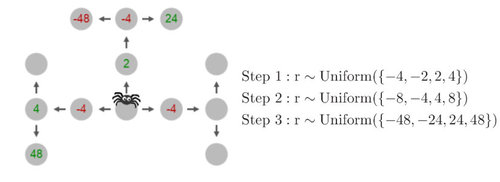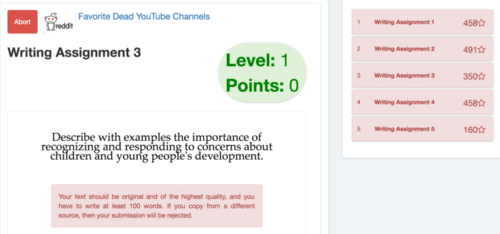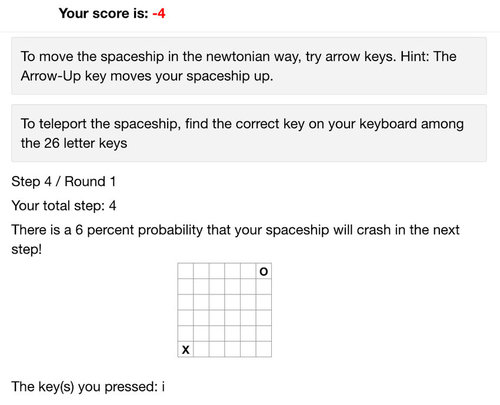2019
Griffiths, T. L., Callaway, F., Chang, M. B., Grant, E., Krueger, P. M., Lieder, F.
Doing More with Less: Meta-Reasoning and Meta-Learning in Humans and Machines
Current Opinion in Behavioral Sciences, 29, pages: 24-30, October 2019 (article)
Jain, Y. R., Gupta, S., Rakesh, V., Dayan, P., Callaway, F., Lieder, F.
How do people learn how to plan?
2019 Conference on Cognitive Computational Neuroscience, September 2019 (conference)
Mohnert, F., Tosic, M., Lieder, F.
Testing Computational Models of Goal Pursuit
2019 Conference on Cognitive Computational Neuroscience,, CCN2019, September 2019 (conference)
Lieder, F., Chen, O. X., Krueger, P. M., Griffiths, T. L.
Cognitive Prostheses for Goal Achievement
Nature Human Behavior, 3, August 2019 (article)
Jain, Y. R., Callaway, F., Lieder, F.
Measuring How People Learn How to Plan
In Proceedings 41st Annual Meeting of the Cognitive Science Society, pages: 1956-1962, CogSci2019, 41st Annual Meeting of the Cognitive Science Society, July 2019 (inproceedings)
Xu, L., Wirzberger, M., Lieder, F.
How should we incentivize learning? An optimal feedback mechanism for educational games and online courses
41st Annual Meeting of the Cognitive Science Society, July 2019 (conference)
Pothos, E. M., Busemeyer, J. R., Pleskac, T., Yearsley, J. M., Tenenbaum, J. B., Goodman, N. D., Tessler, M. H., Griffiths, T. L., Lieder, F., Hertwig, R., Pachur, T., Leuker, C., Shiffrin, R. M.
Extending Rationality
Proceedings of the 41st Annual Conference of the Cognitive Science Society, pages: 39-40, CogSci 2019, July 2019 (conference)
Mohnert, F., Pachur, T., Lieder, F.
What’s in the Adaptive Toolbox and How Do People Choose From It? Rational Models of Strategy Selection in Risky Choice
41st Annual Meeting of the Cognitive Science Society, July 2019 (conference)
Jain, Y. R., Callaway, F., Lieder, F.
Measuring How People Learn How to Plan
pages: 357-361, RLDM 2019, July 2019 (conference)
Lieder, F., Callaway, F., Jain, Y. R., Krueger, P. M., Das, P., Gul, S., Griffiths, T. L.
A Cognitive Tutor for Helping People Overcome Present Bias
RLDM 2019, July 2019, Falk Lieder and Frederick Callaway contributed equally to this publication. (conference)
lawama, G., Greenberg, S., Moore, D., Lieder, F.
Introducing the Decision Advisor: A simple online tool that helps people overcome cognitive biases and experience less regret in real-life decisions
40th Annual Meeting of the Society for Judgement and Decision Making, June 2019 (conference)
Iwama, G., Wirzberger, M., Lieder, F.
The Goal Characteristics (GC) questionannaire: A comprehensive measure for goals’ content, attainability, interestingness, and usefulness
40th Annual Meeting of the Society for Judgement and Decision Making, June 2019 (conference)
Das, P., Callaway, F., Griffiths, T. L., Lieder, F.
Remediating Cognitive Decline with Cognitive Tutors
RLDM 2019, 2019 (conference)




